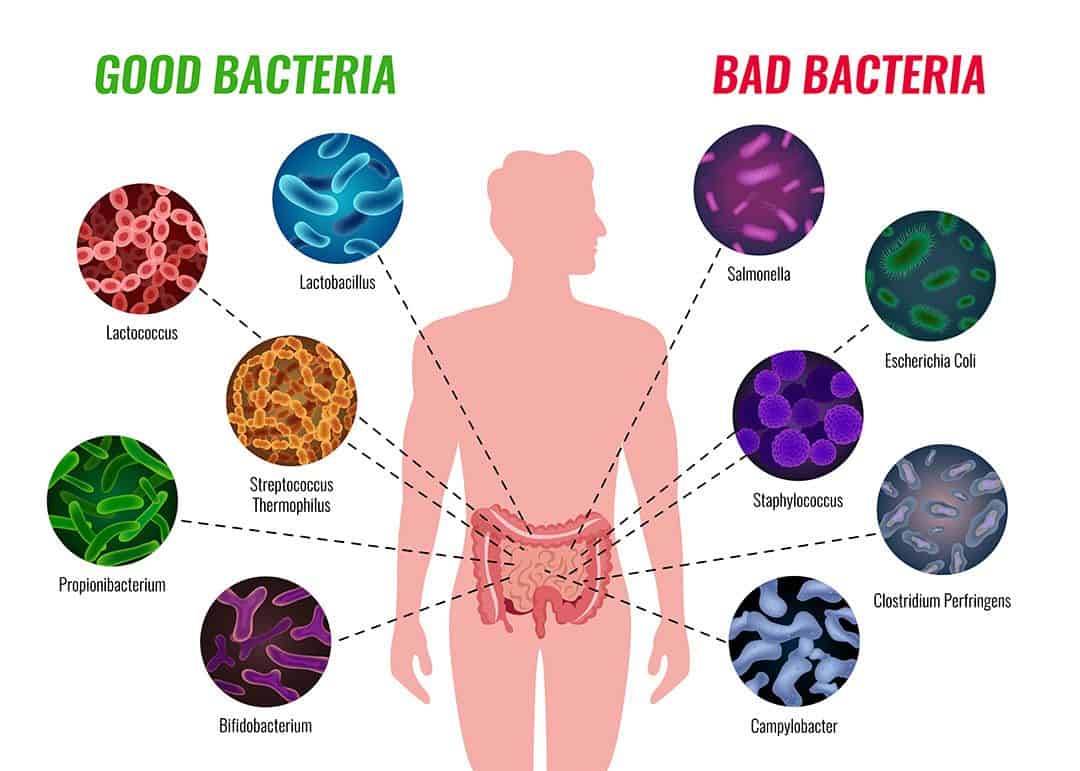You may wonder what signs probiotics are working if you’ve been using them or your doctor and local pharmacist have recommended that you start taking them.
Probiotics, commonly known as "good" or "helpful" bacteria by healthcare experts, are live microorganisms and yeasts that aid in maintaining a healthy gut.
However, when you start supplementing your diet with these products either through pills or food, it might be difficult to determine whether they are effective or not.
Even experts admit that it isn’t always as simple as that.
We investigated and found this: "There are no telltale indications that probiotics are effective, but you may notice an improvement in abdominal discomfort, bloating, inflammation, and weight," says Dr. Kumkum Sarkar Patel of California, a board-certified gastroenterologist.
They can restore and enhance your gut environment, or "flora," as well as overall health in a variety of ways when used properly.
Nonetheless, if you notice any of the changes below after using them, it’s reasonable to assume that they’re working as intended.
Better mood
The gut, like the brain, contains a variety of neurotransmitters.
The gut-brain axis is a connection between the stomach and the brain.
During stressful situations, the body’s brain frequently sends a warning signal to the stomach, telling it to guard against possible danger, resulting in digestive issues such as a nervous or upset stomach.
Additionally, individuals who suffer from chronic stomach problems are frequently sad or nervous.
The gut and the brain are frequently linked.
The digestive tract is believed to generate 90% of your body’s serotonin, also known as the "happy chemical," because it makes one feel good and positive.
Furthermore, the gut creates dopamine and gamma-aminobutyric acid, which have a significant impact on your mood.
As a result, if your supplement is working and your gut is relieved, you will be too.
Improved cognitive performance
Gut bacteria are essential in various bodily activities, and it has been suggested that germs may also aid with memory.
Several critical studies have shown that these supplement can improve memory in persons with various types of cognitive impairment, such as bipolar or Alzheimer’s disease.
After four weeks of taking it, participants’ cognitive test results improved.
They have enhanced memory, attention, and psychomotor processing speed over time.
However, take note of your attention span, recall, and information processing skills.
Another indication that they are effective is improved performance in these areas.
Increased energy
A high-quality multi-strain probiotic aids in the absorption of vitamins and nutrients from a meal while a low-quality one makes you feel as if you’re running on empty.
Gut flora also aids in the production of additional B vitamins, which are required for energy generation in the body.
Gut bacteria abnormalities promote poor gut flora, resulting in an overabundance of immune cells to combat the pollutants and leaving you feeling tired.
They improve the number of good bacteria in your gut while lowering the number of harmful germs, resulting in improved energy.
Better response to stress and lower anxiety
The link between the brain and the stomach may also be seen in the body’s reaction to stress.
Stress has been proven to have the same detrimental impact on our gut as junk food.
Similarly, one research revealed that intestinal ailment is linked to a higher chance of developing an anxiety disorder over the next two years.
An imbalance of bacteria in our intestines may be linked with changes in the brain regions involved in anxiety.
They can aid in the formation or restoration of good bacteria in the gut, particularly when there is a deficit of beneficial microorganisms, which may help us to manage stress and anxiety.
Thus, pay attention to your stress-busting potential after you start taking them and whether or not your ability to cope with stress improves.
A healthy supplement balance might be linked to a better stress response.
Improved immunity
They assist the immune system in function.
The gut is home to around 70-80 percent of the immune cells, so your gut and immune system are significantly linked.
The gut is important for the digestion of food and nutrient absorption, including necessary for the immune system.
Beneficial bacteria defend against pathogenic organisms by fighting them off after they’ve been ingested.
Gut bacteria defend you by strengthening the gut wall, monopolizing available nutrients, and modulating inflammation and the inflammatory immune response.
As a result, being ill less frequently indicates that your supplement is effective – fewer colds, flu, and seasonal allergies.
Signs probiotics are not working
Your condition is not getting better
They are typically stated to take 2-3 weeks to start working.
This is because they take time to settle in and populate the region.
If your symptoms haven’t improved (or have even worsened) after taking the specific supplement you’re using; it’s an indication that it isn’t effective.
So, if after four weeks of continuous administration you have not noticed any benefits, it may be time to adjust your dosage.
You are becoming sick more frequently
They are quite beneficial in that they may aid with many ailments and disorders within the body.
They might include gastrointestinal difficulties, heart and metabolic diseases, and even mental health problems.
Their capacity to improve immune system function is only one of their many advantages.
Taking all of this into account, if you have been using it for a few months and are experiencing recurrent sickness (whether as often as before you started it or even more frequently), it’s safe to say that it isn’t effective.
You’re feeling the negative effects
Finally, while it is unusual, some people may suffer adverse reactions when utilizing these supplements.
Gas and bloating are the most common adverse effects of most bacteria-based of these supplements.
You might feel constipated and thirsty if it contains yeast.
If you’ve been eating it rich foods like yogurt or sauerkraut, you could be experiencing headaches due to overdoing it.
This is due to the presence of particular biogenic amines in these foods.
When certain nutrients in food are fermented by bacteria, these little molecules form.
Once in the body, these biogenic amines can stimulate your nervous system and change blood flow.
This might give you a headache.
If you’re having any of these negative effects, probably, your supplement isn’t functioning properly for you.
What should you do if your probiotics aren’t effective?
Fortunately, if you experience reactions or your supplement is ineffective, you aren’t defenseless.
You may take several actions to make it a health-boosting powerhouse.
The following are the actions you may take:
- Check to see if they are not expired
- Double-check your dosages
- Replace your current supplement strain with a different one
- Change the brand of your supplements
- Add to your dosage to enhance the effectiveness
- Start including them in your meals
Conclusion
There is little evidence suggesting that one can overdose on them.
However, read the package label carefully and do not take more than the manufacturer’s suggested dosage.
The right dose might differ based on a person’s health and the type of supplement they are using.
If it has any negative side effects or symptoms, reduce the dosage or stop taking it.
However, this article assures, enlightens, and answers the questions of people searching for knowledge on signs probiotics are working and when they are ineffective.


















